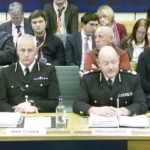It has been reported that items displayed in the collection of a Glasgow museum may have been looted from their Jewish former owners by the Nazis.
The Burrell Collection, which dates back to acquisitions made by the wealthy shipowner Sir William Burrell in 1944, already knew that two works on display were stolen from their Jewish owners by the Nazis in the 1930s. Glasgow City Council even paid out a large amount of money in compensation to the works’ would-be heirs.
However, Glasgow Museums curator Martin Bellamy has recently published a book, A Collector’s Life: William Burrell, which maintains that even more works than previously acknowledged can be proven to have belonged to Jewish owners who relinquished their treasures as part of the practice known as “forced sale”.
This was part of the wider policy of “Aryanisation”, in which Jews in Germany and Austria were forced to register property or assets – including life insurance, stocks, furniture and works of art – valued above a certain amount. They also lost favourable financial incentives available to non-Jews, and were forced to be part of the highest tax bracket irrespective of their actual income. If they chose to leave the country, they were forced to hand over half of their assets and exchange what remained at the least favourable rate of exchange of their destination.
Glasgow Life, a charity that administers the 9,000-piece collection, has admitted that works acquired under these circumstances are on display. They do not, however, identify precisely which works were acquired in this manner.
Scottish historian Sir Tom Devine said: “As long as the provenance of these items is established by experts and curators, it should always be made public. The question the public will ask is, ‘What do they have to hide?’ I find the refusal rather curious. Curators of museums always want the truth to be out, and unvarnished at that.”
Speaking on behalf of the Scottish Council of Jewish Communities, Ephraim Borowksi said: “I suggest that the point to be made is that this isn’t a question of law, but morals. Given the scale of the Holocaust, there may be no surviving family members to make a formal legal claim. It’s up to public galleries to acknowledge the dubious history of items in their collection.”
The Burrell Collection, which has recently undergone a £70 million renovation, will open to the public on 5th April.









